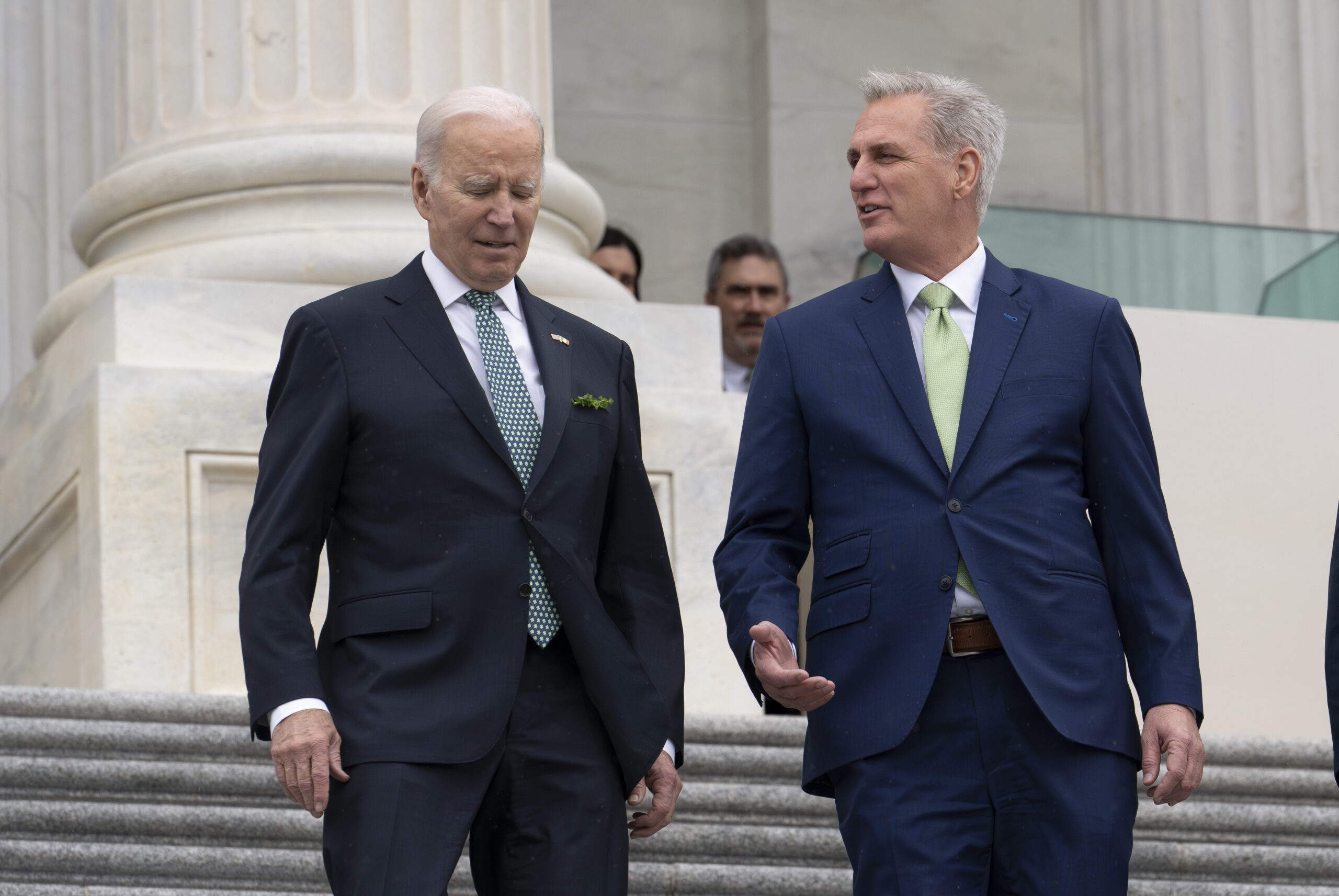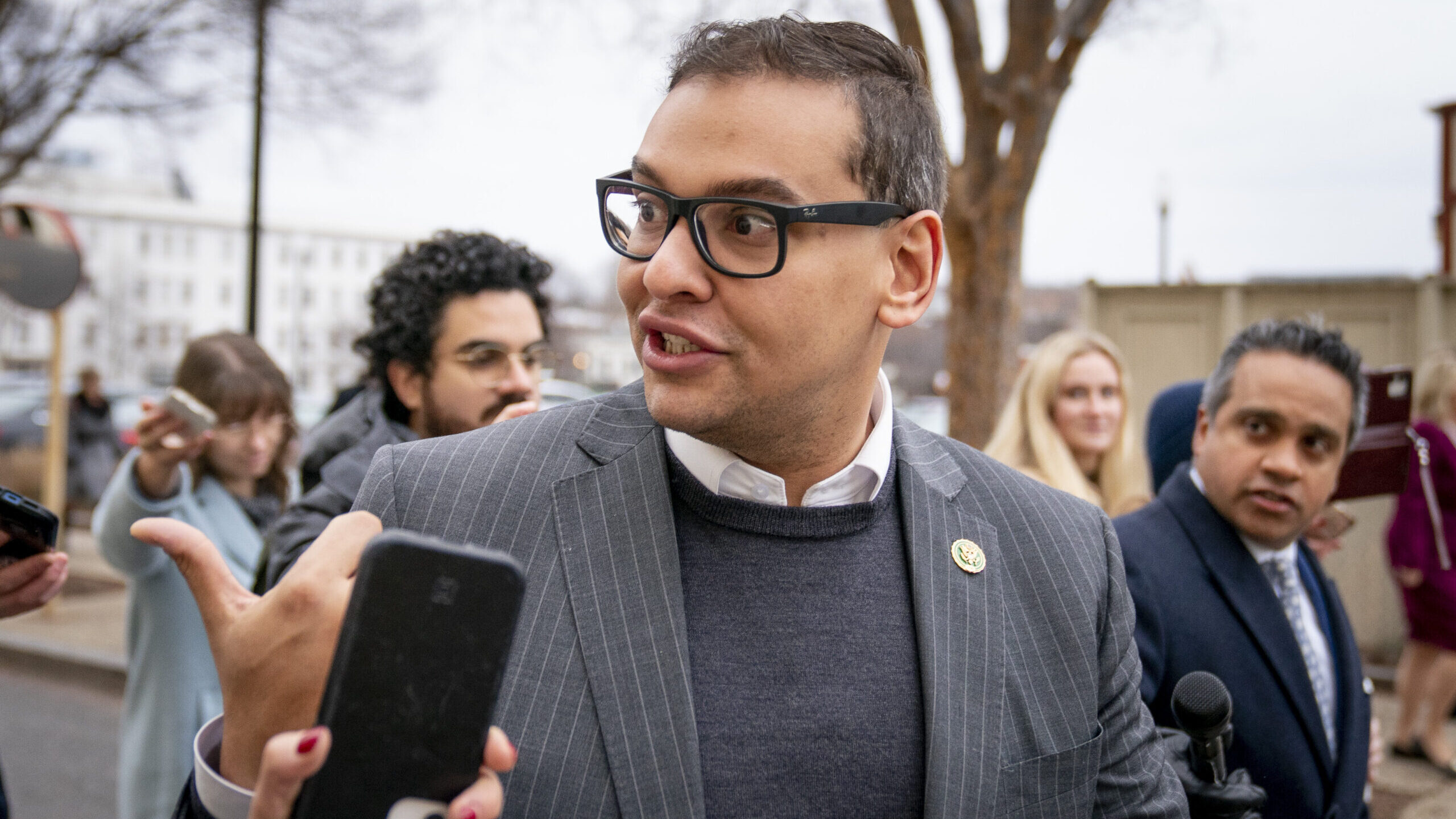DAVE & DUJANOVIC
Compromise bill may save police pensions, but with a delay
Mar 14, 2019, 2:21 PM | Updated: 7:01 pm

After a tax reform bill failed in the House, Medicaid expansion and the bill to restore police pensions are both at risk. (Photo: Derek Peterson / KSL TV)
(Photo: Derek Peterson / KSL TV)
S.B. 129, the bill that would restore Utah police officers’ and firefighters’ pensions to something closer to what they had before 2011, seemed like it was in jeopardy on Thursday, the last day of the legislative session – until lawmakers came up with a compromise.
Before the compromise was proposed, the problem was tax reform. Supporters say the original bill is still incredibly popular with lawmakers and citizens alike. Instead, the problem has to do with another bill: the controversial bill to reform Utah’s sales taxes, which was shot down in the House last week.
That bill, which would have expanded sales taxes onto a wide range of currently untaxed services, met opposition from a great deal of the public. Lawmakers, obeying the will of the people, shelved it – but now they say that if nothing is done to balance our state budget, all the other bills Utahns have been rallying for, from Medicaid expansion to police pensions, just might not be feasible.
A last-minute push to compromise to keep the bill alive was approved by lawmakers late Thursday afternoon. That bill will delay implementation until 2020 to give cities and counties time to figure out how to pay for it.
The compromise bill is now headed to Gov. Gary Herbert’s desk for a signature.
Sen. Todd Weiler explains Utah’s tax reform

Sen. Todd Weiler talks to KSL Newsradio’s Dave & Dujanovic about tax reform. (Photo: Colby Walker / KSL Newsradio)
“We have a structural imbalance in our tax code right now,” Sen. Todd Weiler told KSL Newsradio’s Dave & Dujanovic, joining their live broadcast on Capitol Hill on Thursday.
At first glance, that might seem hard to believe. Utahns who have heard about our state’s $1.1 billion budget wouldn’t be blamed for being a little skeptical about the idea that our state can’t afford programs like Medicaid or Public Safety pensions.
But the problem, Weiler says, has to do with a little-known rule in our state constitution. Every penny Utah earns through income taxes has to be put toward education. As a result, 80 percent of that budget surplus is tied up in education, leaving the government with little wiggle room for everything else.
“We have to run the whole rest of the state on sales tax, which has not been keeping pace,” Weiler says.
That leaves the state with only a handful of options available to find funding for Medicaid and Public Safety, Weiler says.
Option #1: Increase taxes on food

Utah’s tax reform solution might include nearly tripling taxes on groceries, Weiler says. (Photo: Kirstin Murphy / Deseret News)
If Utah is unable to pass a bill to expand sales taxes onto services, it might have to deal with it by expanding taxes in other ways. One idea that’s being floated in the Senate right now is to nearly triple taxes on food, raising them from 1.75 to 4.7 percent.
That was Utah’s state tax rate on groceries up until 2006. Weiler believes that changing it in the first place was a mistake.
“That was a stabilizing force to our general fund,” Weiler says. “When the economy goes bad, people stop buying new cars and stuff, but they still go to Smith’s and buy their milk and bread.”
Food taxes, he argues, provide a stable revenue flow for the state that doesn’t dry up when the economy goes through a rough patch. When the state has to rely on sales taxes without those essentials, on the other hand, the state’s budget can tighten every time Utah’s families tighten their own budgets.
The impact of cutting food taxes, Weiler says, has been tremendous. He claims that it has cost public education over a billion dollars over the previous decade.
Option #2: Increase property taxes
Another option being floated around Capitol Hill is to fill in the gap with property taxes.
This is an idea that, to an extent, has already been put into motion. On Wednesday, Gov. Gary Herbert signed a bill into law that revamps how property taxes are assessed. The state, however, is considering taking that further and increasing property taxes across the board.
Currently, Weiler says, most of the money Utahns pay into their property taxes comes with tight restrictions on how it can be used.
“The city gets, like, 10 percent of [property taxes],” Weiler says. “Most of it goes to the schools – 80 percent of it.”
Changing that would hit every Utah homeowner, but Weiler says that most of the money would come from businesses instead of private citizens.
“People don’t realize this, but your primary residence gets a 45 percent deduction on your property taxes that businesses don’t get,” Weiler says. “The cities, the counties, they rake it in from commercial businesses.”
Option #3: Expand sales taxes

Services like haircuts and salon visit may still be subject to tax reform, Weiler says. (Photo: Studio 5 with Brooke Walker / KSL TV)
The original plan to expand sales taxes into services might have been shelved for now, but not everything in it, Weiler says, is entirely off the table. In fact, he believes that whatever Utah ends up doing, at least some services are going to be affected.
Most likely, Weiler says, it’ll be services that aren’t essential, such as haircuts and nail salons, that’ll end up getting taxed.
There’s one part of the original plan, however, that Weiler says is almost certainly “off the table.” The state probably won’t be able to collect revenue off attorney’s fees.
“There’s constitutional issues there,” he says. “If you get charged with a crime falsely, you’re going to have to pay your defense attorney. If your spouse cheats on you and takes the kids and beats you up, you’re going to have to pay your attorney.”
That makes attorneys an important part of your constitutional rights – and means that Utah is almost certainly going to have look somewhere else to fill in the budget gap.
Option #4: Cut spending

If Utah isn’t able to pass a tax reform bill, the bill to restore police pensions might not make it into law. (Photo: Utah Public Safety / Twitter)
If Utah lawmakers are unable to find a way to get more money into the budget, they’re going to have to balance the budget by cutting expenses somewhere else.
On paper, that might seem like the ideal solution – but if the state has to start cutting some of the expenses it already pays, it’s going to make it very difficult for them to add new expenses like Medicaid expansion and Public Safety pension increases.
This is why the bill to restore police pensions has stalled in the House. If lawmakers can’t find a way to fund it, they just can’t pass it.
That could be a major problem, supporters say. If Utah doesn’t restore police pensions, says Bountiful Police Chief Tom Ross – one of the most vocal lobbyists in favor of the bill – it’s going to affect police recruitment statewide.
“The biggest recruiters of Public Safety are the people in the field,” Ross says. When officers feel valued and take pride in their jobs, he says, they encourage friends and family members to join the force. But since the police pension program was cut, that recruitment tool hasn’t been working.
“That’s not happening today,” Ross says, “and we’re not going to overcome that if we don’t start addressing some of this equity fairness issue.”
S.B. 129 would be a big step toward putting Utah’s benefits package on par with neighboring states, but if some kind of tax reform isn’t passed, its chances might be slim. When the tax expansion was shut down, Ross says, the bill “kind of imploded.”
A difficult decision

KSL Newsradio’s Dave & Dujanovic speak to Tom Ross about the future of the Public Safety retirement bill. (Photo: Colby Walker / KSL Newsradio)
Weiler and other lawmakers recognize that none of these options will sound that appealing to most of us. They insist, however, that something has to be done.
“There’s only a few big items left on the table,” Weiler says. If our lawmakers don’t pick one of the first three, things like police pensions just might get cut.
Still, Ross remains optimistic that something will be worked out.
“We’re still talking, and we’re still at the table,” he says. “This could have been ended, and [lawmakers are] still talking to us.”
Late Thursday afternoon, the House of Representatives approved the compromise bill that would delay implementation of the restored police pensions another year. A short time later, the Senate approved the revisions, with about six hours left before the end of the session.
Dave & Dujanovic can be heard weekdays from 9 a.m. to noon on KSL Newsradio. Users can find the show on the KSL Newsradio website and app, as well as Apple Podcasts and Google Play.















